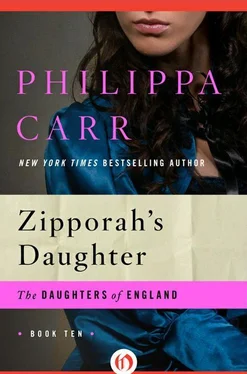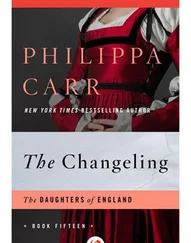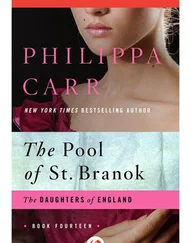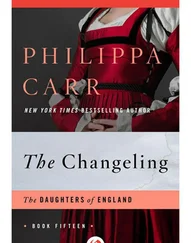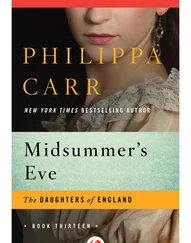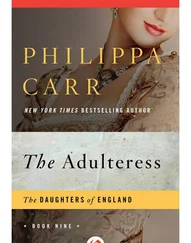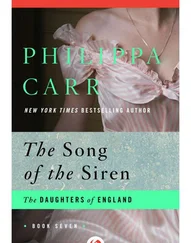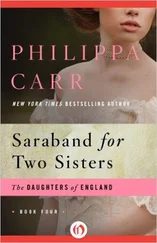Philippa Carr - Zipporah's Daughter
Здесь есть возможность читать онлайн «Philippa Carr - Zipporah's Daughter» весь текст электронной книги совершенно бесплатно (целиком полную версию без сокращений). В некоторых случаях можно слушать аудио, скачать через торрент в формате fb2 и присутствует краткое содержание. Жанр: Исторические любовные романы, на английском языке. Описание произведения, (предисловие) а так же отзывы посетителей доступны на портале библиотеки ЛибКат.
- Название:Zipporah's Daughter
- Автор:
- Жанр:
- Год:неизвестен
- ISBN:нет данных
- Рейтинг книги:4 / 5. Голосов: 1
-
Избранное:Добавить в избранное
- Отзывы:
-
Ваша оценка:
- 80
- 1
- 2
- 3
- 4
- 5
Zipporah's Daughter: краткое содержание, описание и аннотация
Предлагаем к чтению аннотацию, описание, краткое содержание или предисловие (зависит от того, что написал сам автор книги «Zipporah's Daughter»). Если вы не нашли необходимую информацию о книге — напишите в комментариях, мы постараемся отыскать её.
Zipporah's Daughter — читать онлайн бесплатно полную книгу (весь текст) целиком
Ниже представлен текст книги, разбитый по страницам. Система сохранения места последней прочитанной страницы, позволяет с удобством читать онлайн бесплатно книгу «Zipporah's Daughter», без необходимости каждый раз заново искать на чём Вы остановились. Поставьте закладку, и сможете в любой момент перейти на страницу, на которой закончили чтение.
Интервал:
Закладка:
So he was determined to show me everything, but first he took us to a fashionable dressmaker so that Sophie and I might have dresses made for a presentation at Versailles.
‘I want you to be acknowledged by the King,’ he told me, ‘because without that you cannot go to Court. It may be that you won’t be. We have to wait and hope that he will appear. All you have to do is curtsey lower than you ever have done before and if he addresses you, answer him clearly. It would be a brief encounter and if he should speak to you I will make it known that you are on a short visit to France in case he should ask someone to make plans for you. There will be others present all hoping for the honour of being addressed—however briefly—by the King, and he will be passing through the ante-room on his way to some engagement.’
‘And for this we must have new dresses?’
‘You must do me credit,’ said the Comte.
‘It seems a great deal of formality.’
‘That,’ said the Comte, ‘is France.’
So we went to the dressmaker—a very soignée woman—who seemed very old and was so patched and powdered that her face was scarcely visible. It was as though she were wearing a mask. She brought out bales of material which she caressed with long white fingers as though they were loved ones; she summoned her assistants and they turned me about, unpinning my hair and treating me as they might have done a bundle of merchandise; and all the time the dressmaker’s piercing eyes studied me. They glinted as she said: ‘She is a child … as yet … but we will do something.’
And to me: ‘When you are older … when you have become a woman eh? … then it will be a joy to dress you.’
They decided on rich peacock blue silk for me. ‘Very simple,’ she cried. ‘We show the child … but the woman to come.’
She spent a lot of time with me, less with Sophie. It was blue for her too, a light turquoise shade.
I laughed when we came out. ‘She takes her dresses very seriously,’ I said.
‘She is one of the greatest dressmakers in Paris,’ Sophie told me. ‘She once made for Madame de Pompadour.’
I was impressed, but more interested in the sights of Paris than the forthcoming visit to Versailles which was the reason for so much planning.
The Comte and I were often alone. He seemed to want that and poor Sophie was often excluded from our expeditions. We did not always use his coach but for fun would take the little carriages which were called pots de chambre because of their shape, and although they exposed us to the weather we did not mind that in the least. In these we would ride round Paris. Whenever I hear the clip-clop of horses’ hooves on a road, I can be transported to those days which seemed to hold a special magic for me.
The Comte wanted me to understand the life of Paris. He wanted me to hear the people coming in through the barriers from the country in the early morning bringing the produce they sold in the markets. It was a city which awoke early and at seven o’clock, although there were no carriages on the roads, people began to stir and go to their business. I was most amused when the waiters from the lemonade shops came running to the various apartment houses with their trays of coffee and rolls for the petit déjeuner of the people who lived there. The various trades seemed to have their special times for making themselves seen and heard. At ten o’clock the legal practitioners went to the Châtelet and, wigged and gowned, they made an extraordinary spectacle with those whose cases they were going to try running along beside them. At midday it was the stockbrokers. But at two o’clock all was quiet. That was the dinner hour and it was not until five that the city became lively again. Then it was at its most noisy, for the streets were blocked with carriages and pedestrians.
‘The most dangerous time is when it begins to get dark,’ said the Comte. ‘No lady must ever be out alone at that time. Thieves abound … and worse. The Watch is not yet on duty and no one is safe. Later on when the streets become full of people it is not so bad.’
The play started at nine and after that the streets quietened down a little until round about midnight when carriages carrying people from supper and gambling parties would go rumbling through the streets.
I loved it all. I wanted to get up early to see the peasants arrive with their fruit, flowers and provisions of all sorts as they made their way to Les Halles. I wanted to see the bankers of Gonesse bringing in their bread. I wanted to buy coffee from the coffee women who stood on the street corners with their tin urns on their backs; it was two sous a cup and served in earthenware vessels but it tasted like nectar to me. I loved the street singers, some of them singing sacred hymns and others specializing in obscenity.
I think the Comte enjoyed those days too and perhaps saw Paris more intimately than he ever had before. He would dress very simply when he took me walking and he always held my arm firmly. I was touched by the way he always protected me from the splashing of carriages, for the Paris mud was notorious and contained an element of sulphur in it which would burn holes in one’s clothes if not removed at once. He took me to Notre Dame, that great landmark of a great city. How it inspired me with its grandeur, but most of all by its antiquity. We went inside and when he had shown me the glorious wheel window in the north transept and the rose window over the organ and we had climbed the three hundred and ninety-seven spiral steps of the turret to look at Paris from the top of the Cathedral, we sat inside in the gloom and the Comte told me of some of the events which had taken place in the history of Notre Dame. Afterwards we looked at the gargoyles which decorated the walls of the Cathedral and somehow my mood changed. They were such strange faces … so wicked … so cunning.
‘Why did they put them there?’ I demanded. ‘They have spoiled its beauty.’
All the same I could not stop looking at those hideous faces … saturnine … evil, but what struck me most was that they seemed to be leering, revelling.
‘In what are they revelling?’ I asked.
‘The follies of human nature, I always thought,’ answered the Comte.
He must have been impressed by the effect this had on me, but he was determined to show me everything possible during our tours of the city. Our rides took us past various prisons. Two stand out in my memory—the Conciergerie on the Quai de l’Horloge whose circular towers could be seen from the bridges and bank of the river; and the Bastille at the Porte St-Antoine with its grim bastions and towers. I shuddered at the sight of the gallery from which cannon projected.
‘They are not all criminals who are imprisoned there,’ the Comte explained. ‘Some are victims of their enemies … men whose politics have betrayed them … or perhaps they have become too dangerous through Court intrigue.’
He then told me of the infamous lettres de cachet, which were warrants of imprisonment issued by the Kings of France. Although they were countersigned by a minister they had to be signed by the King. ‘There is no redress,’ said the Comte. ‘Any man can receive his lettre de cachet and never discover the reason why, for once he is incarcerated in the Bastille, he has little hope of ever getting out.’
Looking up at those grim walls I wondered about the people who were living behind them. ‘But it is so unfair … so unjust!’ I cried.
‘Life often is,’ said the Comte. ‘One has to be always wary to make sure one does not take a false step which could end in disaster.’
‘How can you be sure of that?’
‘One can’t. One has to walk carefully and one does learn as one gets older. In one’s youth one can be rash.’
Читать дальшеИнтервал:
Закладка:
Похожие книги на «Zipporah's Daughter»
Представляем Вашему вниманию похожие книги на «Zipporah's Daughter» списком для выбора. Мы отобрали схожую по названию и смыслу литературу в надежде предоставить читателям больше вариантов отыскать новые, интересные, ещё непрочитанные произведения.
Обсуждение, отзывы о книге «Zipporah's Daughter» и просто собственные мнения читателей. Оставьте ваши комментарии, напишите, что Вы думаете о произведении, его смысле или главных героях. Укажите что конкретно понравилось, а что нет, и почему Вы так считаете.
